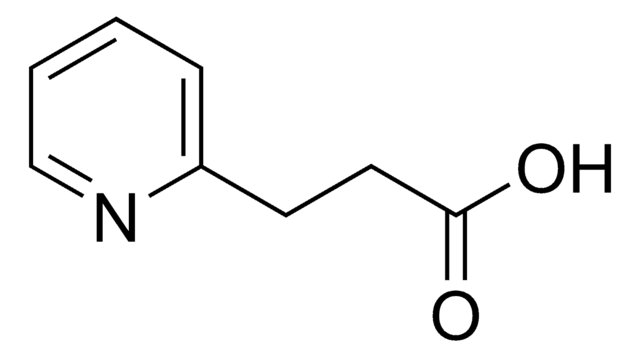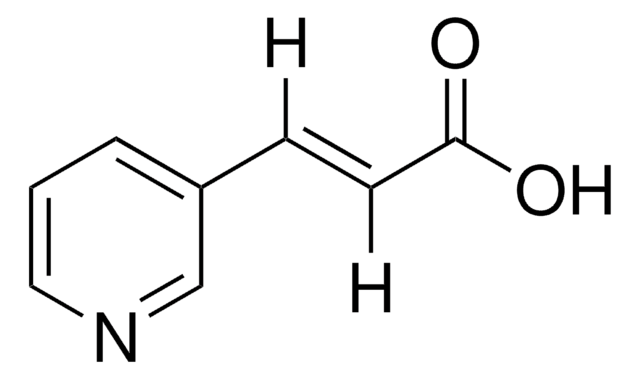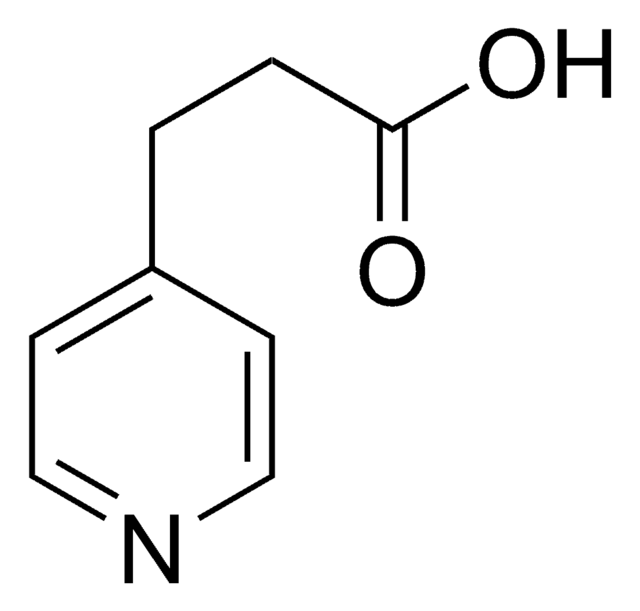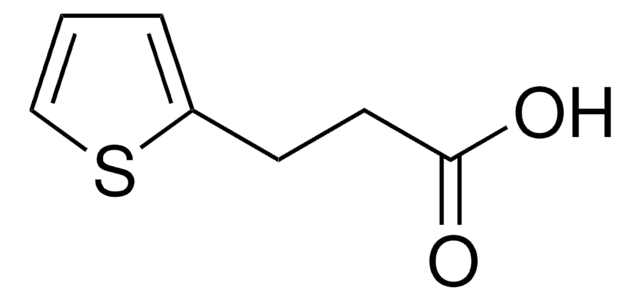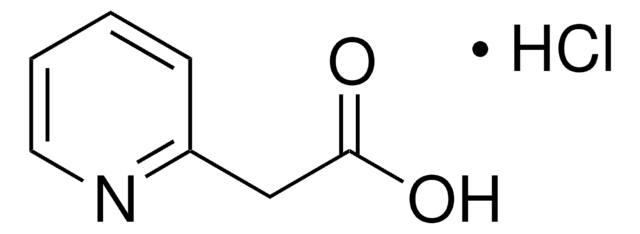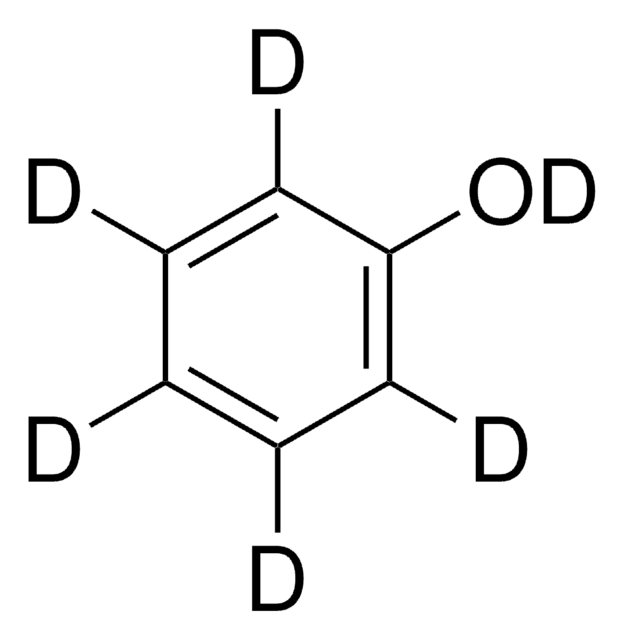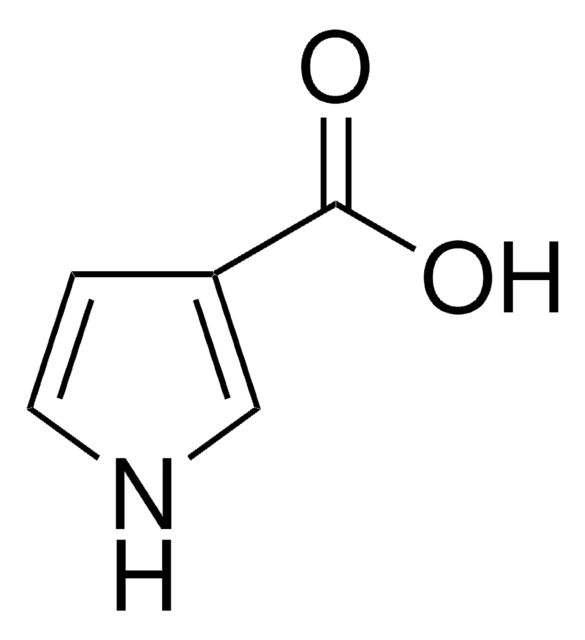349860
3-Pyridinepropionic acid
98%
Synonym(s):
3-(3-Pyridyl)propionic acid
Sign Into View Organizational & Contract Pricing
All Photos(1)
About This Item
Empirical Formula (Hill Notation):
C8H9NO2
CAS Number:
Molecular Weight:
151.16
MDL number:
UNSPSC Code:
12352100
PubChem Substance ID:
NACRES:
NA.22
Recommended Products
Quality Level
Assay
98%
mp
156-160 °C (lit.)
SMILES string
OC(=O)CCc1cccnc1
InChI
1S/C8H9NO2/c10-8(11)4-3-7-2-1-5-9-6-7/h1-2,5-6H,3-4H2,(H,10,11)
InChI key
WDGXIUUWINKTGP-UHFFFAOYSA-N
General description
3-Pyridinepropionic acid is commonly used as ligand to make coordination polymers. Crystal structure of 3-pyridinepropionic acid (3-(pyridin-3-yl) propionic acid ) has been investigated.
Application
3-Pyridinepropionic acid (PPA) may be used:
- in the preparation of new coordination polymers of Ag, Cu and Zn, via reaction with AgNO3, Cu(NO3)2·6H2O and Zn(NO32·6H2O in MeOH
- in the hydrothermal synthesis of coordination polymers, [Zn(PPA)2(H2O)2]n and [Cd(PPA)2]n
- as bidentate chelating agent for the chelation of rare-earth ions, Eu3+ and Tb3+ for the fluorescence enhancement in sol-gels
Signal Word
Warning
Hazard Statements
Precautionary Statements
Hazard Classifications
Eye Irrit. 2 - Skin Irrit. 2 - STOT SE 3
Target Organs
Respiratory system
Storage Class Code
11 - Combustible Solids
WGK
WGK 3
Flash Point(F)
Not applicable
Flash Point(C)
Not applicable
Personal Protective Equipment
dust mask type N95 (US), Eyeshields, Gloves
Choose from one of the most recent versions:
Already Own This Product?
Find documentation for the products that you have recently purchased in the Document Library.
Syntheses and structural characterization of three new coordination polymers of [Ag (PPIA)? H2O] n,[Cu (PPIA) 2? 2H2O] n and [Zn (PPIA) 2 (H2O) 2] n; PPIA.
Wang Y-H, et al.
Polyhedron, 25(15), 2944-2952 (2006)
Andreas Lemmerer
Acta crystallographica. Section E, Structure reports online, 67(Pt 1), o215-o215 (2010-01-01)
In the crystal of the title compound, C(8)H(9)NO(2), mol-ecules assemble to form C(8) chains along the b axis by N-H⋯O hydrogen bonds, supported by weaker C-H⋯O hydrogen bonded-inter-actions between adjacent chains.
Fluorescence enhancement by chelation of Eu3+ and Tb3+ ions in sol-gels.
Magyar AP, et al.
Journal of Luminescence, 108(1), 49-53 (2004)
Topological and luminescent properties of two coordination polymers constructed from 3-pyridinepropionic acid.
Zhou Y, et al.
Inorganic Chemistry Communications, 15, 140-145 (2012)
Our team of scientists has experience in all areas of research including Life Science, Material Science, Chemical Synthesis, Chromatography, Analytical and many others.
Contact Technical Service